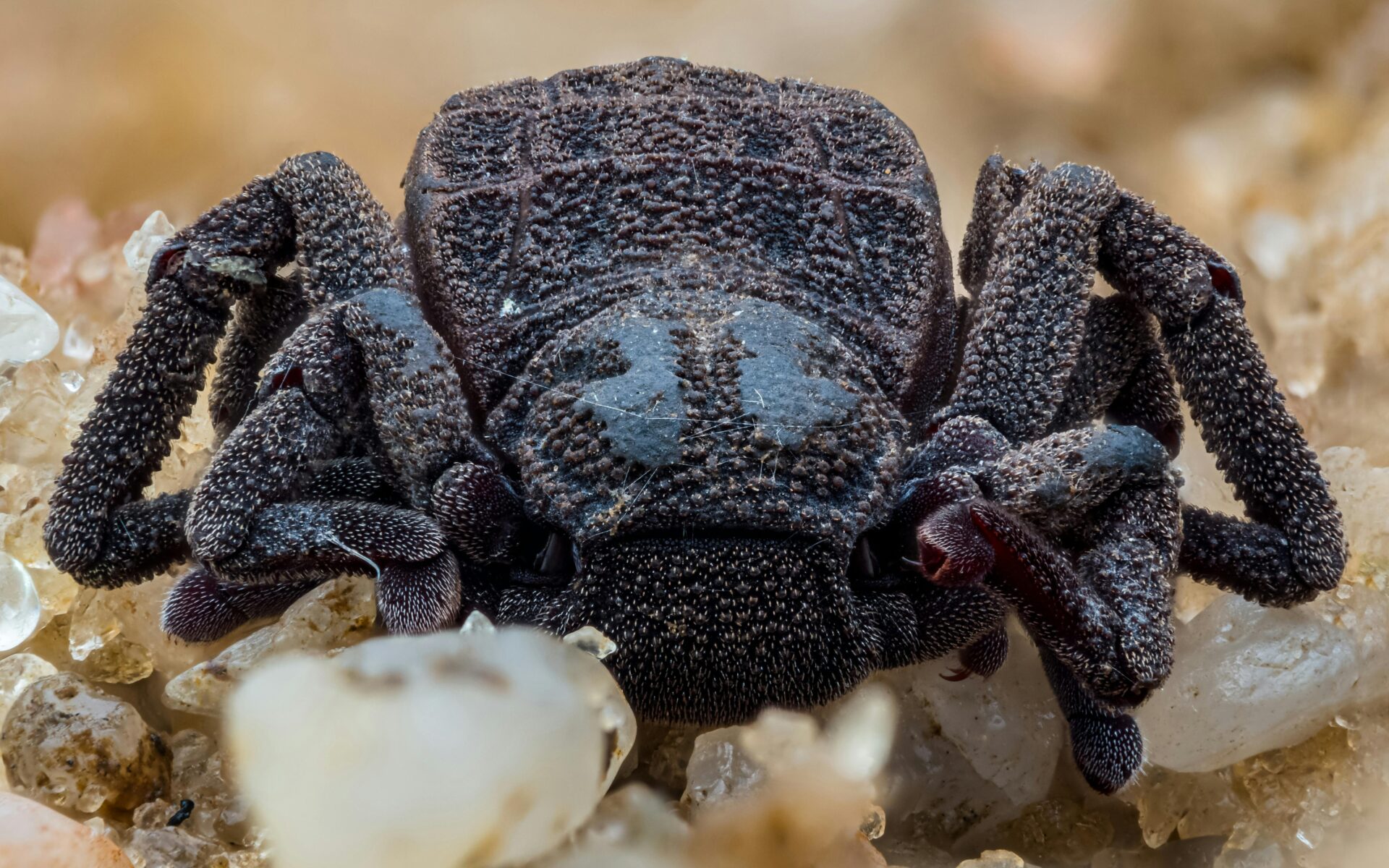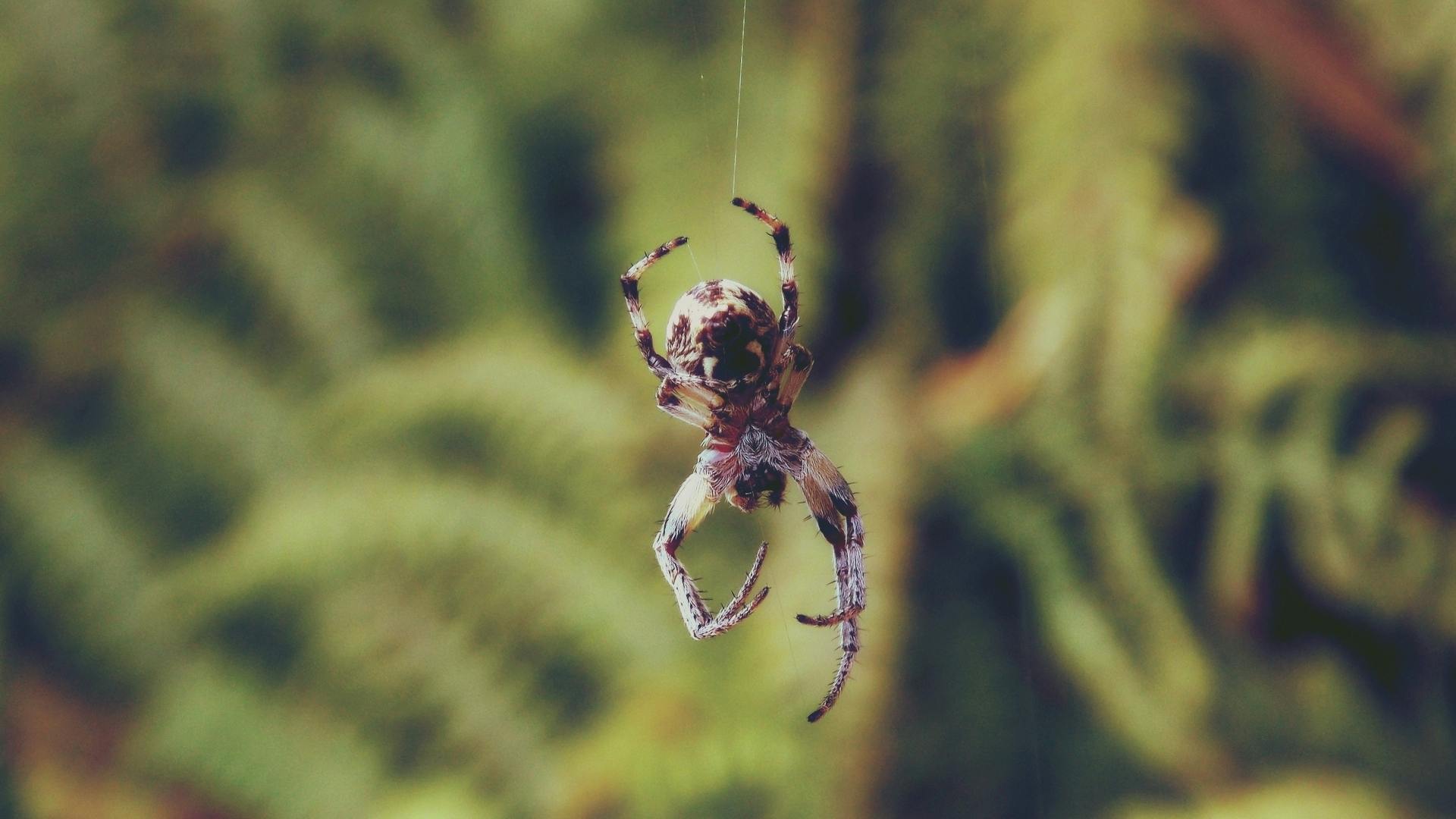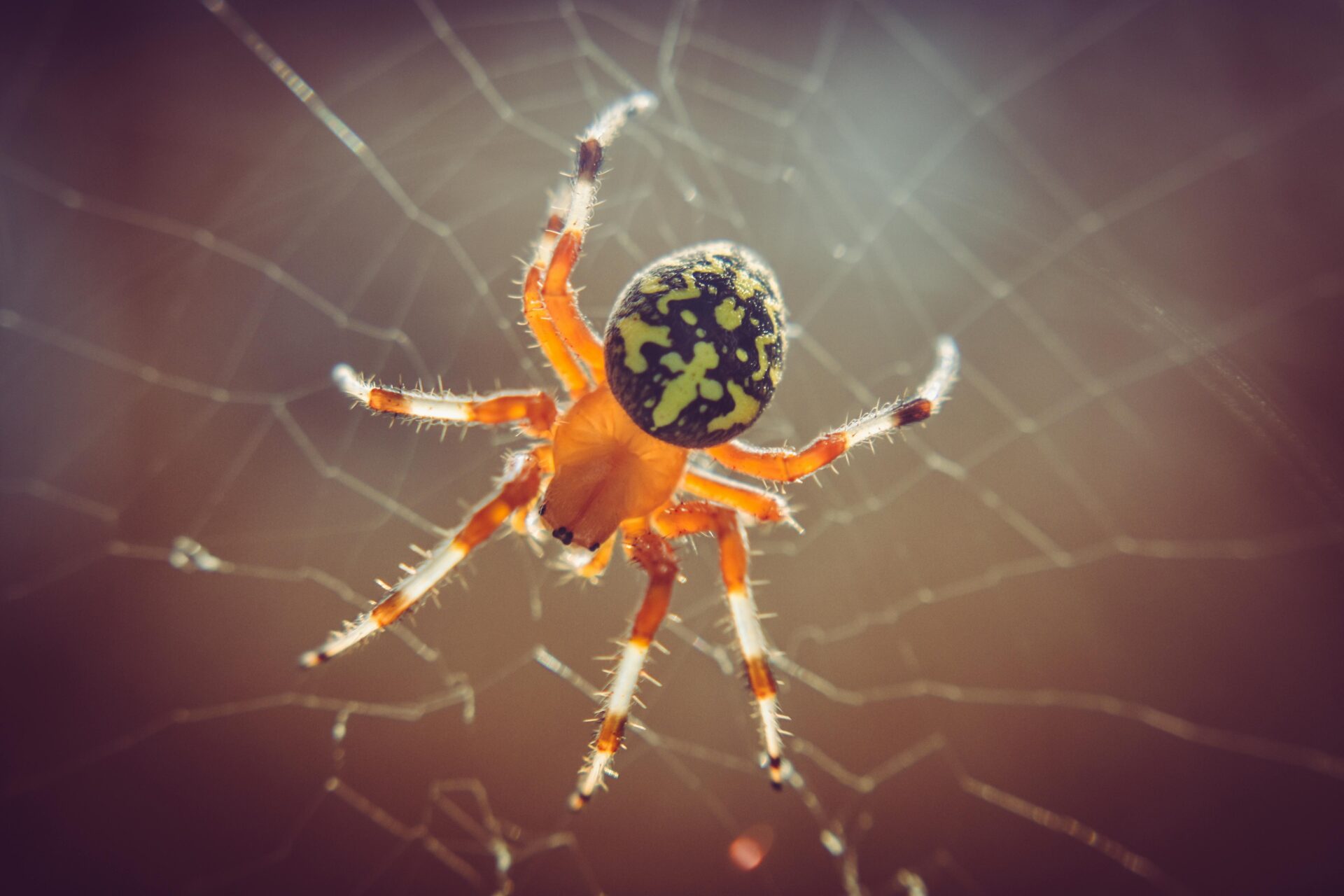Ever wondered if spiders sleep? Let's dive into this fascinating topic because understanding spider behavior is not just creepy but also super intriguing. Spiders are everywhere—hiding in corners, spinning webs, and generally being the unsung heroes of pest control. But when do they take a break? Do they even need rest? Trust me, it’s not as straightforward as you might think.
Spiders are creatures that often get a bad rap. People either love them or absolutely despise them. Yet, they play a vital role in our ecosystems. But here's the twist—do spiders actually sleep like humans do? The answer might surprise you, and it’s not as simple as “yes” or “no.”
In this article, we’re going to explore everything you need to know about spider rest patterns, their behavior, and how they manage to thrive without the traditional concept of sleep. So, buckle up because we’re about to crawl into the world of spider slumber!
- How Can I Access My Raspberry Pi Anywhere Without Breaking A Sweat
- How To Use Access Raspberry Pi From Anywhere Free The Ultimate Guide
Here’s a quick table of contents to guide you through the article:
- The Spider's Biological Clock
- Rest Patterns in Spiders
- Do Spiders Dream?
- Spider Activity Cycles
- Environmental Factors Affecting Spider Rest
- Do Different Types of Spiders Sleep Differently?
- The Science Behind Spider Rest
- How Does Spider Rest Compare to Human Sleep?
- Common Myths About Spider Sleep
- Final Thoughts on Spider Rest
The Spider's Biological Clock
Alright, let's start by talking about the spider’s internal clock. Just like humans, spiders have a circadian rhythm—a fancy term for their daily biological cycle. This rhythm dictates when they’re most active and when they’re likely to take a break. But here’s the kicker—spiders don’t exactly “sleep” in the way we do.
Instead, they enter periods of inactivity where their metabolism slows down. Think of it like a mini-hibernation. During these periods, spiders are less responsive to stimuli, and their bodies focus on conserving energy. It’s kind of like how you feel after a long day—you just want to chill and recharge.
- Raspberry Pi Remote Manager Your Ultimate Guide To Simplified Control
- Sone 436 Nissan Unleashing The Power Of Performance And Innovation
How Does the Circadian Rhythm Work?
Spiders rely on environmental cues to regulate their activity levels. Light and temperature changes play a huge role in determining when they’re active and when they’re resting. For example, nocturnal spiders are more active at night, while diurnal spiders prefer the daylight hours. Pretty cool, right?
Here’s a quick breakdown of how spiders’ circadian rhythms work:
- Nocturnal spiders: Hunt and move around at night, rest during the day.
- Diurnal spiders: Active during the day, take breaks at night.
- Crepuscular spiders: Most active during dawn and dusk.
Rest Patterns in Spiders
Now that we’ve covered the basics of their biological clocks, let’s dive deeper into how spiders actually rest. Spoiler alert—it’s not like human sleep. Spiders don’t have eyelids, so they can’t close their eyes. Instead, they enter a state of reduced activity called “quiescence.”
During quiescence, spiders remain still and unresponsive to their surroundings. Their heart rate slows, and their breathing becomes more relaxed. This state allows them to conserve energy and prepare for their next hunting session. It’s like a spider version of power napping!
What Triggers Spider Quiescence?
Several factors can trigger quiescence in spiders, including:
- Fatigue after a big meal
- Environmental changes like temperature drops
- Low light conditions
Interestingly, some studies suggest that spiders might even adjust their rest patterns based on the availability of prey. If food is scarce, they might stay active longer to increase their chances of catching a meal.
Do Spiders Dream?
Okay, here’s where things get really interesting. Do spiders dream? The short answer is… we’re not entirely sure. While humans and some animals experience REM sleep (the stage where dreaming occurs), spiders don’t have the same brain structure. However, some researchers believe that spiders might experience something similar to dreaming during their quiescent state.
Imagine this—spiders could be replaying their hunting adventures or practicing web-building techniques in their minds. It’s a fascinating thought, isn’t it? While we can’t say for certain, the possibility of spider dreams adds another layer of intrigue to their already complex behavior.
Spider Activity Cycles
Let’s talk about the activity cycles of spiders. As we mentioned earlier, spiders can be nocturnal, diurnal, or crepuscular. Their activity patterns depend on their species, habitat, and hunting strategies. For example, orb-weaving spiders are typically nocturnal, while jumping spiders are more active during the day.
Here’s a fun fact—some spiders can switch between different activity cycles based on environmental conditions. For instance, if it’s too hot during the day, a diurnal spider might become more active at night to avoid overheating. Nature is full of surprises, isn’t it?
Factors Influencing Spider Activity
Several factors can influence a spider’s activity cycle, including:
- Temperature
- Humidity
- Availability of prey
- Predator presence
These factors work together to create a delicate balance that determines when spiders are most active and when they take a break.
Environmental Factors Affecting Spider Rest
Now, let’s talk about the environmental factors that affect spider rest. Spiders are highly adaptable creatures, but they still rely on their surroundings to regulate their behavior. For example, if the temperature drops too low, spiders might enter a state of torpor—a deeper form of quiescence that helps them survive harsh conditions.
Similarly, changes in humidity can impact a spider’s activity levels. Too much moisture might make it difficult for them to move around, while dry conditions could affect their web-building abilities. It’s all about finding the right balance to thrive in their environment.
How Do Spiders Adapt to Extreme Conditions?
Spiders have evolved some pretty impressive adaptations to deal with extreme conditions. For instance, some species can produce antifreeze proteins to survive freezing temperatures. Others can adjust their web-building techniques to suit different environments. It’s like they have their own version of survival skills!
Do Different Types of Spiders Sleep Differently?
Absolutely! Different types of spiders have different rest patterns based on their species and lifestyle. For example, web-building spiders might rest more frequently because they expend a lot of energy creating and maintaining their webs. On the other hand, hunting spiders might take shorter breaks since they rely on their agility to catch prey.
Here’s a quick rundown of how different spider types rest:
- Orb-weaving spiders: Rest during the day, hunt at night.
- Jumping spiders: Active during the day, rest at night.
- Wolf spiders: Hunt at night, rest during the day.
As you can see, each spider species has its own unique way of managing rest and activity. It’s like a spider version of multitasking!
The Science Behind Spider Rest
Let’s dive into the science behind spider rest. Researchers have been studying spider behavior for years, and they’ve uncovered some fascinating insights. For example, studies have shown that spiders can enter a state of quiescence that closely resembles sleep in terms of physiological changes. Their heart rate slows, their breathing becomes more relaxed, and they become less responsive to stimuli.
One study even suggested that spiders might have a primitive form of memory consolidation during their quiescent state. This means they could be processing information and learning from their experiences while they rest. Isn’t that mind-blowing?
What Do Scientists Still Need to Learn?
While we’ve made significant progress in understanding spider rest, there’s still a lot we don’t know. For instance, do all spiders experience quiescence in the same way? How does their rest affect their overall health and longevity? These are just a few of the questions that scientists are working to answer.
How Does Spider Rest Compare to Human Sleep?
Now, let’s compare spider rest to human sleep. While there are some similarities, there are also some key differences. Humans experience several stages of sleep, including REM and non-REM sleep. Spiders, on the other hand, enter a state of quiescence that doesn’t involve the same brain activity.
That being said, both humans and spiders need rest to function properly. Rest allows our bodies to repair themselves, conserve energy, and prepare for the next day (or night, in the case of spiders). It’s a vital part of life for all living creatures.
Common Myths About Spider Sleep
Before we wrap up, let’s debunk some common myths about spider sleep. For starters, spiders don’t actually sleep like humans do. They enter a state of quiescence instead. Another myth is that all spiders rest at the same time—this couldn’t be further from the truth. Different species have different activity patterns based on their environment and lifestyle.
Here’s a quick list of common myths:
- Spiders sleep with their eyes closed (they don’t have eyelids).
- All spiders rest during the day (some are nocturnal).
- Spiders don’t need rest (they absolutely do!).
So, the next time someone tells you a spider-related myth, you’ll be armed with the facts to set them straight!
Final Thoughts on Spider Rest
And there you have it—a deep dive into the world of spider rest. While spiders don’t exactly sleep like humans do, they still need periods of rest to thrive. Their quiescent state allows them to conserve energy, process information, and prepare for their next hunting session.
Understanding spider behavior is not only fascinating but also important for appreciating their role in our ecosystems. So, the next time you see a spider chilling in its web, remember that it’s probably just taking a well-deserved break.
Now, it’s your turn! Leave a comment below and let me know what you think about spider rest. Do you have any questions or insights to share? And don’t forget to check out our other articles for more interesting facts about the animal kingdom.



Detail Author:
- Name : Clotilde Stroman
- Username : gia81
- Email : dbalistreri@yahoo.com
- Birthdate : 2001-10-07
- Address : 18960 Freddie Green West Jaiden, ND 94497
- Phone : +1-610-664-8306
- Company : Towne-Zemlak
- Job : Network Admin OR Computer Systems Administrator
- Bio : Enim odio aliquam et cupiditate. Sunt ad eveniet voluptatem molestias eum optio deleniti. Harum nesciunt enim adipisci est nulla sed sint deserunt.
Socials
tiktok:
- url : https://tiktok.com/@corkerym
- username : corkerym
- bio : Unde delectus rerum esse enim.
- followers : 288
- following : 2378
twitter:
- url : https://twitter.com/corkerym
- username : corkerym
- bio : Esse totam ratione ducimus sequi et harum. Et et enim eius nihil eum magnam sapiente. Perferendis consequatur autem quibusdam sunt quis.
- followers : 2464
- following : 2317
linkedin:
- url : https://linkedin.com/in/marisol_official
- username : marisol_official
- bio : Eos nulla id magni numquam ut deleniti.
- followers : 1089
- following : 539